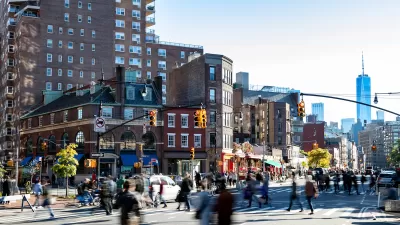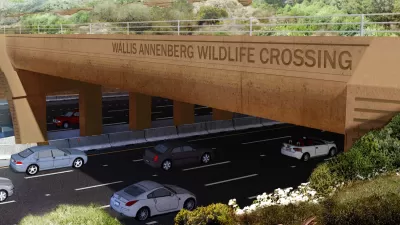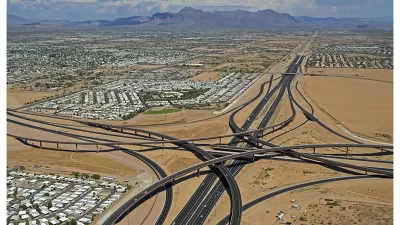At a Senate Environment and Public Works Committee meeting on Feb. 12, leaders from big labor, big business, AASHTO, and AMTRAK testified to the importance of keeping the Highway Trust Fund solvent. The first two specified increasing the gas tax.
"U.S. Chamber of Commerce President Tom Donohue told the Senate Environment and Public Works Committee that increasing the gas tax would be "the simplest, most straight-forward, and most effective way to generate enough revenue" to cover an estimated $20 billion per year shortfall in transportation funding," wrote Keith Laing, The Hill's veteran transportation reporter.
The Chamber leader received back up from an unlikely source on Wednesday from AFL-CIO President Richard Trumka, who told the panel, "The gas tax was last raised in 1993 when it represented 17 percent of the price of fuel; it now represents about five percent of the cost of fuel."
He agreed with Donohue in that boosting the federal gas tax, unchanged for two decades, was the way to go. Both agreed that a "user fee" approach made the most sense, as did committee chair, Sen. Barbara Boxer (D-Calif.), because of the "certainty" it provides.
Additional witnesses included Mike Hancock, president of the American Association of State Highway and Transportation Officials (AASHTO) who warned of "serious economic disruptions as early as this summer if USDOT delays reimbursements to the states for projects already completed." MAP-21, the current, two-year transportation bill expires on Sept. 31, 2014.
Hancock's testimony (PDF) suggested three options to deal with the impending insolvency of the Highway Trust Fund (HTF):
1. Provide additional General Fund transfers to the HTF in order to maintain the current level of highway and transit investment and meet prior-year obligations.
2. Provide additional receipts to the HTF by adjusting existing revenue mechanisms or implementing new sources of revenue.
3. Virtually eliminate new federal highway and transit obligations in FY 2015.
Finally, Amtrak CEO Joseph Boardman joined in. "We need a balanced Transportation Trust Fund that can provide investment in any surface mode-- including Highway, Transit, and Rail (both passenger and freight)," he said.
However, Laing notes that "Amtrak traditionally receives about $1 billion per year in funding from Congress, but the money is usually drawn from other places than the Highway Trust Fund."
FULL STORY: Business, labor groups push for gas tax hike

Pennsylvania Mall Conversion Bill Passes House
If passed, the bill would promote the adaptive reuse of defunct commercial buildings.

Planning for Accessibility: Proximity is More Important than Mobility
Accessibility-based planning minimizes the distance that people must travel to reach desired services and activities. Measured this way, increased density can provide more total benefits than increased speeds.

World's Largest Wildlife Overpass In the Works in Los Angeles County
Caltrans will soon close half of the 101 Freeway in order to continue construction of the Wallis Annenberg Wildlife Crossing near Agoura Hills in Los Angeles County.

Eviction Looms for Low-Income Tenants as Rent Debt Rises
Nonprofit housing operators across the country face almost $10 billion in rent debt.

Brightline West Breaks Ground
The high-speed rail line will link Las Vegas and the Los Angeles area.

Colorado Bans No-Fault Evictions
In most cases, landlords must provide a just cause for evicting tenants.
City of Costa Mesa
Licking County
Barrett Planning Group LLC
HUD's Office of Policy Development and Research
Mpact Transit + Community
HUD's Office of Policy Development and Research
Tufts University, Department of Urban and Environmental Policy & Planning
City of Universal City TX
ULI Northwest Arkansas
Urban Design for Planners 1: Software Tools
This six-course series explores essential urban design concepts using open source software and equips planners with the tools they need to participate fully in the urban design process.
Planning for Universal Design
Learn the tools for implementing Universal Design in planning regulations.
























